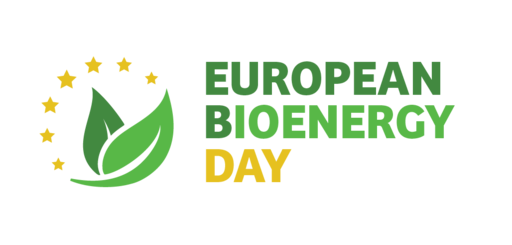
Bioenergy Day 2020: Celebrating the people, projects and companies driving the European bioenergy sector
Brussels, 13th November 2020
The 13th November marks ‘European Bioenergy Day’ and with it, Bioenergy Europe are pleased to announce the launch of the fourth edition of the European Bioenergy campaign. The campaign aims to shed light on the increasingly central role that sustainable biomass is playing in Member States’ energy mix. When each national Bioenergy Day is celebrated, a corresponding success story is published for that country. These stories shed light on the people, projects and companies that are contributing to European carbon-neutrality and bioenergy’s increased success in greening transport, industry, and buildings.
Bioenergy is playing an increasingly important role in the European Union’s energy transition and in supporting its ambitious climate targets. It is estimated that as of the 13th November, bioenergy alone will be able to cover all the energy needs of the EU Member States until the end of the year – that’s 49 days of energy supplied entirely by bioenergy! This year’s impressive European Bioenergy Day date confirms past years trends and signifies the growth experienced by the European bioenergy sector as it comes to play a more central role in the renewable energy transition.
While bioenergy continues to steer Europe towards a carbon-neutral free contributing already with 10.3% of the gross final energy consumption, recent gloomy number only serve to highlight how Europe remains excessively dependent on fossil fuels (82.5%) – with subsidies continuing to head in the wrong direction. By spreading the projection for Europe’s energy demand in 2020 across the calendar, this really becomes evident. Bioenergy Europe calculates that the EU continues to rely on fossil and nuclear energy for a worryingly 282 days in 2020 (January 1st to October 9th). All renewables combined account for 84 days of clean energy (from October 9th onwards) and among these, bioenergy alone contributes to an impressive 49 days (November 13th to December 31st).
At EU level, this accounts for two additional days of clean energy compared with the previous year. And – thankfully – when examining single countries’ figures, a similar positive trend emerges. Countries such as Denmark, Finland and Sweden have seen an impressive net increase in bioenergy consumption ranging from 3 to almost 5 extra days!
Contributing to nearly 60% of gross final energy consumption, bioenergy is a leading source of renewable energy. The bioenergy sector contributes to the creation of more than 700,000 direct and indirect jobs in Europe, representing 49% of all RES jobs. Moreover, with European-based industry accounting for more than 50,000 businesses across the continent, bioenergy produces an annual turnover of nearly €60.6 million and net export worth €5 billion, bioenergy makes a substantial contribution to sustainable economic growth. By 2050 it is estimated that there will be 460 Mtoe of sustainable biomass available, including residues from forestry, agriculture, industry and organic waste: that’s the equivalent of 1.624 oil tankers, each gravid with 2 million barrels!
Considering the challenge that Member States’ face as they rush to reduce final energy consumption and meet the European Commission’s ambitious climate targets, bioenergy can play a pivotal role. This quantity of energy could meet more than half of the EU’s final energy demand by 2050! But regardless of this, bioenergy remains one of the least know forms of renewable energy and often lies outside of the public’s knowledge. Yet, in 2017, solid biomass consumption helped save €40 billion worth of fossil fuel and contributed to GHG emission reduction at the rate of 1 million tonnes a day.
Bioenergy Europe believe that it is people who are driving bioenergy’s contribution to carbon neutrality. That is why through this year’s success stories, the European Bioenergy Day campaign is highlighting the individuals, companies and initiatives that are helping Europe to reach its ambitious climate targets through bioenergy – an available, affordable and viable solution.
